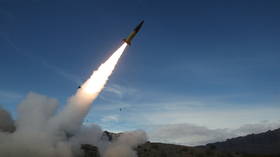War games in Chechnya
The largest and only Russian army unit to be permanently located in the Chechen Republic has held large-scale training involving heavy artillery. Situated in the city of Khankala, 10 km from the capital Grozny, the 42nd division is made up of more than 15
Those already drafted can sign a contract for at least three years to stay in the army. But it needs to become their profession if they are to operate in such a dangerous area.
Regiments are located in areas where there is still the threat of possible attack, such as Bashen-Kale near the
Russian-Georgian border.
During the wars of the 1990s clashes were common there, but over the last five years things have changed dramatically.
The city of Khankala was among the places which saw the worst fighting in the 1990s.
Some five years ago there was debris all around in Khankala, the city was severely damaged. Today there's a division which looks more like a small city where thousands of professional soldiers do their jobs.
Some even bring their families with them. There is infrastructure available for them, including a kindergarten, schools and a hospital, which people say is the best in the area.
The division even has its own bread-baking plant which provides soldiers and their relatives with fresh buns and rolls.
Just a few days ago Tomas Hammarberg, the European commissioner for human rights, visited Chechnya. He said the republic is far from being a top holiday destination and living here could still be dangerous but it's improving.












